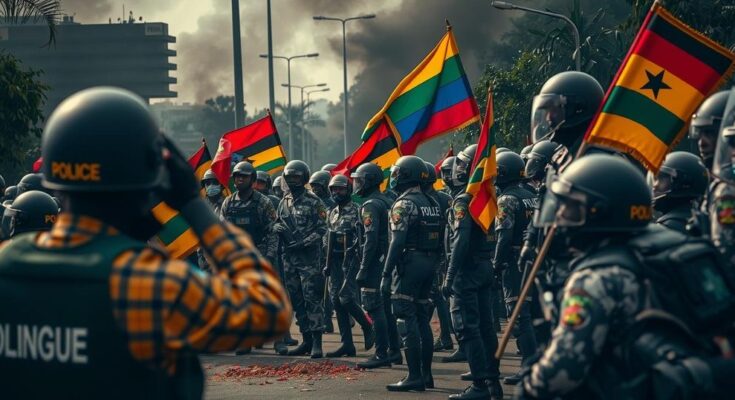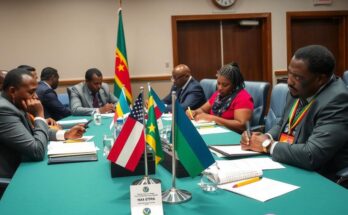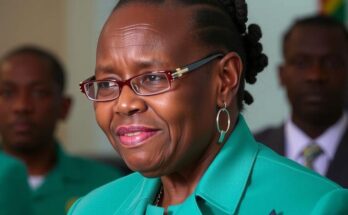Following the October 9, 2024 elections in Mozambique, protests erupted against the ruling Frelimo party, which claims to have been re-elected, amidst widespread allegations of fraud. Police responded with severe force, leading to numerous casualties. Opposition leaders have called for protests, highlighting the ongoing tension stemming from decades of autocratic rule and the assassination of political figures, reflecting a broader demand for change in governance.
Mozambique’s recent elections on October 9, 2024, sparked extensive protests following the ruling Front for the Liberation of Mozambique (Frelimo) party’s claim of victory, which extends its dominance to over 58 years. Allegations of electoral fraud, such as ballot stuffing and manipulation of voter lists, have led opposition parties and citizens to dispute the election’s legitimacy. In the wake of these events, unrest has escalated across the nation, particularly in the capital, Maputo, where heavy police crackdowns have resulted in numerous casualties amidst reports of excessive force against demonstrators. The tension heightened dramatically after the late-night assassinations of two senior opposition figures associated with independent candidate Venancio Mondlane, who subsequently called for a national strike. Following their deaths, protests became increasingly violent, prompting police to respond with tear gas and rubber bullets. Reports suggest that security forces have killed over 20 people, while local sources claim that the number exceeds 50. This unrest has caused neighboring South Africa to close its border with Mozambique as safety concerns escalate. The situation has drawn international scrutiny, with humanitarian organizations highlighting the police’s disproportionate response during protests. As protests continue to grip the country, the narrative reflects Mozambique’s longer history of political unrest and civil war, compounded by severe socioeconomic issues, including an ongoing insurgency in the northern Cabo Delgado province. Opposition leaders, including Mondlane, who has reportedly gone into exile, stress the urgent need for reforms to end decades of political suppression by Frelimo.
The context of this unrest in Mozambique highlights the long-standing political dominance of the Frelimo party since the country’s independence in 1975. Despite claims of a democratic process, elections have consistently been marred by allegations of fraud and corruption, undermining public trust in the electoral system. The 2024 elections are particularly notable not only for the enduring control of Frelimo but also due to the implications of both the history of civil war in the country and current violent insurgencies. The recent events reflect the deep frustrations of citizens, especially among the youth, toward systemic injustices perpetuated over decades of governance.
The unfolding crisis in Mozambique following the 2024 elections underscores significant societal tensions and the potential for ongoing unrest. With violent crackdowns on protests and growing international attention, the possibility of political reform remains uncertain. The situation demands urgent intervention to prevent further loss of life and to address the longstanding grievances of the Mozambican populace while ensuring that democratic principles prevail in future governance.
Original Source: apnews.com




